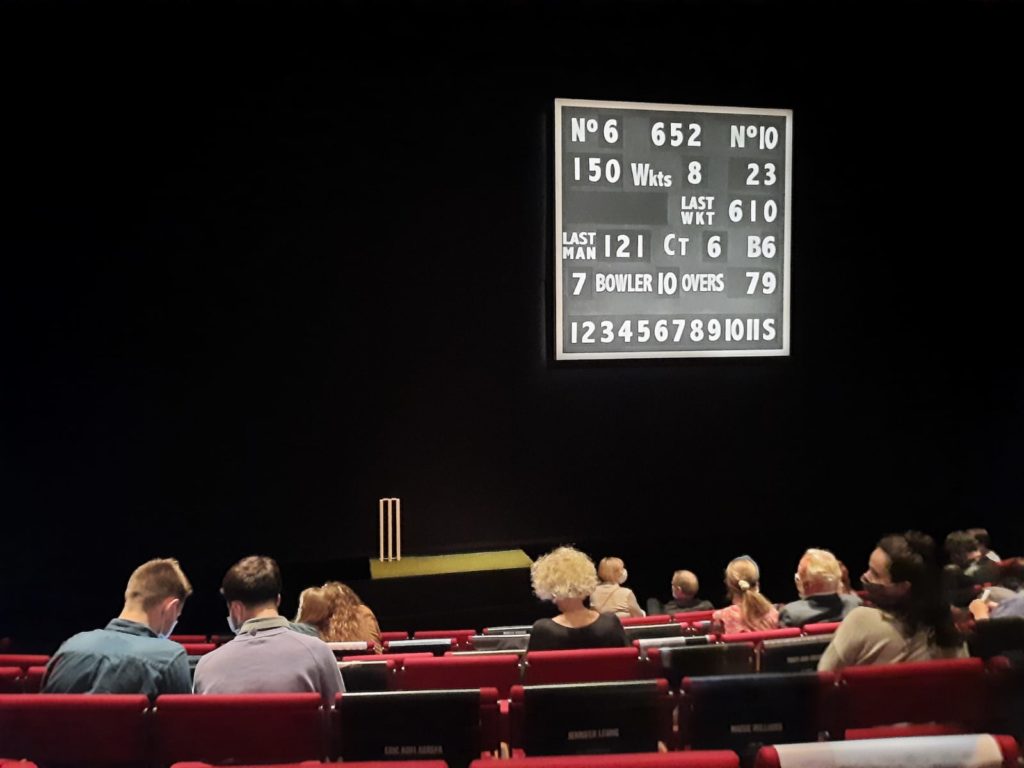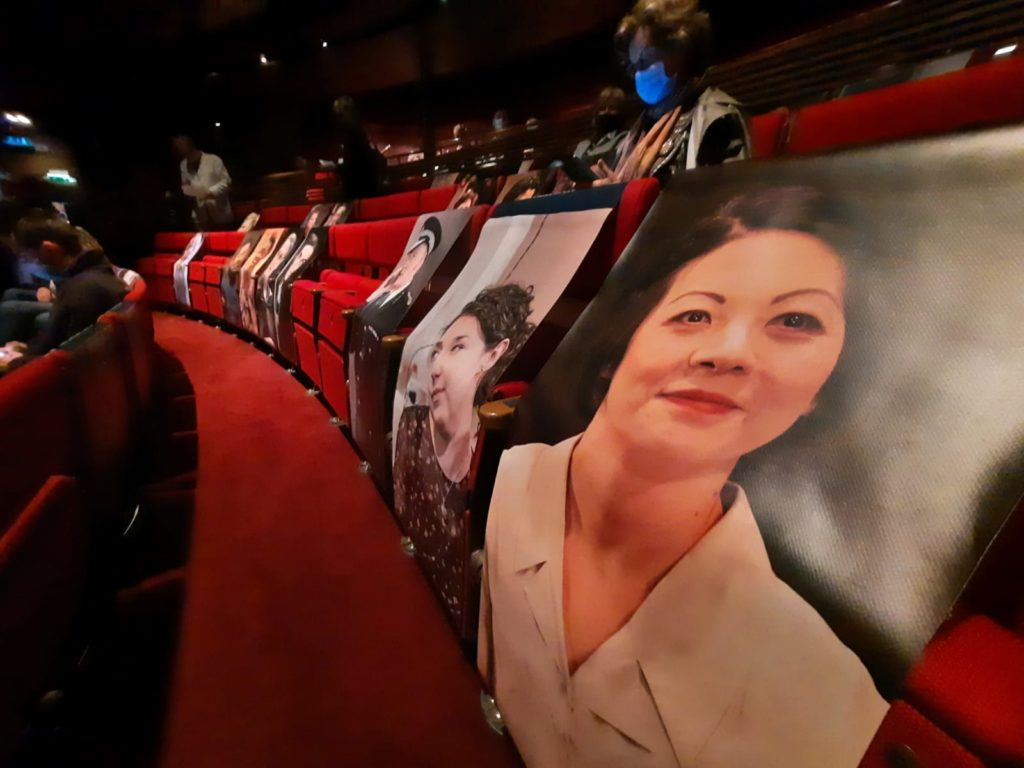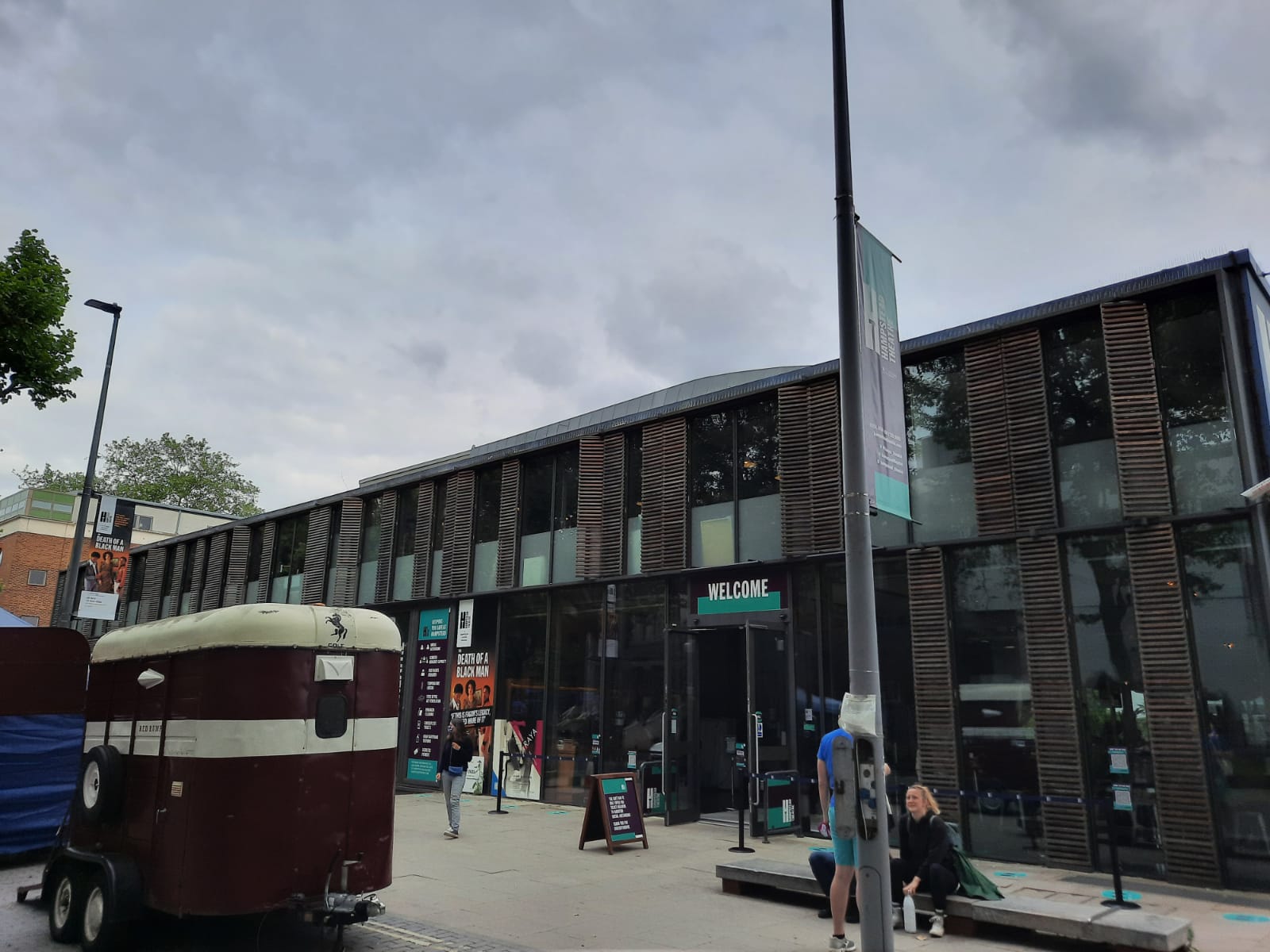The Covid Diaries 75 – Hampstead Theatre, The Death of a Black Man
A review of the Alfred Fagon play The Death of a Black Man at Hampstead Theatre. A period revival that covers a lot of ground, from cricket to death via capitalism and pan-Africanism.

Reviving A Hampstead Theatre Original: The Death of a Black Man
My outing this week was the first time I’ve ever been to the Hampstead Theatre. I don’t think it will be the last – it is a comfortable, modern theatre a stone’s throw from Swiss Cottage station, and seems to have an interesting programme. Hampstead’s 60th birthday happened during lockdown, so their delayed celebration season comprises new work, and plays that had their premiers at the theatre over the years. The play we saw was the first revival of a 1975 work by Alfred Fagon, The Death of a Black Man.
Fagon is an interesting playwright. Jamaican-born, playwright was just one of many hats he wore, including welder, boxer, railway worker, soldier, poet and actor. Writing plays came easily to him, and The Death of a Black Man combines complex themes of race, gender, politics and economics which still resonate today. How can this be its first revival, then? And why isn’t Fagon better known (outside of the Alfred Fagon Award for Black British playwrights)? Well, the frequent overlooking of Black talent (and lives) by an indifferent Britain is actually a theme dealt with in the play, and paralleled in Fagon’s own life.
The Death of Alfred Fagon
Alfred Fagon was a fitness fanatic, friendly with his neighbours who saw him out running, but not close with them. At the age of only 49 in 1986, he collapsed as he returned home from one such run. An ambulance was called, but he was pronounced dead on arrival at hospital. A cursory examination of his flat by police revealed no evidence of friends or family to contact (apart from the clear leads the policeman chose not to follow up), so Fagon was given a pauper’s burial before his friends had time to notice he was missing. There was an outcry which led nowhere as far as the police investigation was concerned, but raised enough funds to found the award in his honour.
This undeserved end to a colourful life is shared as part of the excellent programme for The Death of a Black Man. It only goes to show how important the championing of Black artists and stories is, today as much as in 1975. That there are significant parallels between Fagon’s life and this play in which part of the backdrop is a talented black musician who has died without his due share of recognition or success, throws into sharp relief just how frequently this story may have played out.

How About The Play Itself, Then?
So this is an interesting one. I feel like in the last year I have tended to see a lot of new work like this or this (and a lot of direct responses to the pandemic, in fact). It’s been a long time since I have seen a period piece or a revival from the 70s. The style of the play itself quickly reminds you just where it comes from. It’s a proper 1970s living room drama with lots of dialogue. There are three characters – Shakie (Nickcolia King-N’Da), an 18 year old entrepreneur with his own flat in Chelsea; his ex Jackie (Natalie Simpson); and friend Stumpie (Toyin Omari-Kinch). Jackie arriving back in Shakie’s life throws it off-balance, with disastrous consequences.
There is a real tone shift between the first and second halves of the play. It gets dark, my friends – very dark… But through all the dialogue a lot of important ideas are explored. Who decides what the ‘right’ way is to be Black? What does it mean to be a Black businessman? How do you get to the top of the capitalist pile when there’s always someone higher up waiting to exploit you? What allegiance do we owe to ourselves vs. others vs. our community? Throughout these conversations, all of the actors switch between British accents and Jamaican patois. Does this reveal to us the conflicts inherent within each of them? It must certainly be a challenge from an acting point of view.
And The Production?
Speaking of acting, the darker second half brought out some great performances. Natalie Simpson in particular was stellar – her coiled energy and the light and shade of her performance blew me away towards the end. I couldn’t take my eyes off her and forgot that she didn’t always have as much to work with script-wise. Toyin Omari-Kinch plays a fairly unlikeable character with great skill and humour. The violence of Stumpie’s character is never far from the surface. And I would agree with a comment I saw somewhere which said that Nickcolia King-N’Da has some work to do on his one-sided phone calls, but he as well towards the end gave a powerful performance, as Shakie is caught up in the consequences of his own decisions.
Dawn Walton’s direction seemed to me to bring out a lot of this power from the play – the style is very uncompromising and unapologetic. And the set design played its part as well. The first half sees the characters in a 1970s living room straight out of a magazine (and one I was mentally mining for my own interior decoration inspiration). By the second half, the characters’ move away from what we would recognise as normal life or acceptable mores is reflected in a set which is floating away from reality. Just what the rising counter was on the cricket scoreboard in the background I am not sure. But Simon Kenny’s design otherwise fit the play perfectly.
Final Thoughts on The Death of a Black Man
I really enjoyed this play, and think it is a terrible shame that this is its first revival in almost 50 years. It is an uncomfortable play, absolutely. But sometimes we need to sit with uncomfortable truths, to work through them through the lens of a fictional story. The dark terror and violence as the lives of the three characters unravel will stay with me for some time. It was a brave act on Fagon’s part to tackle so many serious issues in two hours of theatre. And a testament to his talent that he could do so successfully.
Overall this is a sad story. The Death of a Black Man does not end with a Happily Ever After (although did we ever think it would, with a title like that?). The death of Alfred Fagon was no better. His legacy for younger generations of Black British playwrights is an important one. But we haven’t had the opportunity to see his own work celebrated on stage. This is where it also becomes a story of hope, however. I can hope that this Hampstead Theatre revival will lead to more stagings of Fagon’s works in British theatres. I can hope, too, that in years to come some of the struggles, burdens and concerns of Fagon’s three characters will feel less pressing and urgent to us in the present. Let’s see, shall we?
On its own merits: 4/5
Implementing Covid measures: 4/5
The Death of a Black Man on until 10 July 2021
Keep up with more London theatre news – sign up below for the Salterton Arts Review newsletter:
If you see this after your page is loaded completely, leafletJS files are missing.


8 thoughts on “The Covid Diaries 75 – Hampstead Theatre, The Death of a Black Man”